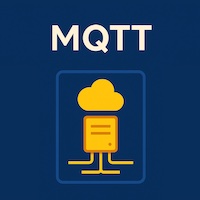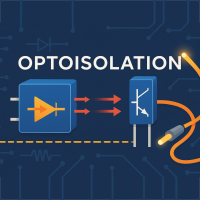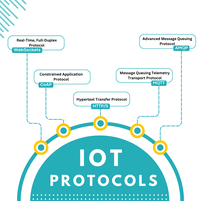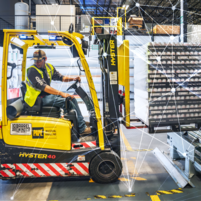What is a smart city?

Smart cities use information and communication technology (ICT) to address the conventional issues of urban life. Smart cities handle the challenges posed by demographic and climatic change, population expansion, pollution, resource shortages, and crime.
An economic, technological, and social trend predicted for future green cities is called a "smart city." Internet of Things (IoT) smart cities is an example of how this technology is being used (internet of things). When we talk about smart cities, we're not just about buildings and transportation; we're talking about everything connected to it: the natural and built surroundings.
Residents of smart cities can benefit from the IoT by interacting with one another and intelligent devices. This section explains how smart cities achieve their goals of providing a better quality of life for their citizens and the ways they employ.
Smart City technologies
Everyday actions, such as getting to work or school, can be made easier and more efficient with the help of smart city technology. Smart city technologies include the following:
Smart utility meters
The smart meter is the utility industry's most popular IoT device. Utilities can better regulate energy flow by installing these devices on buildings and connecting them to a smart energy grid. To help consumers save money, smart meters allow them to monitor their energy use. Smart meters are expected tosave energy firms $157 billion by 2035, according to a report.
Smart transportation
In the public transportation arena, connected vehicles have taken center stage, and the efforts have already begun to bear fruit. Connected cars will account for 97% of all registered vehicles in the United States by 2035. In particular, drivers are interested in voice search and location data capabilities, and as smart apps continue to expand and grow, so will the adoption of smart transportation systems.
Smart power grids
Smart grids are unquestionably the most critical application of smart architecture and infrastructure because of their significant impact on resource use. As an example, the smart grid-equipped city of Amsterdam in the Netherlands has tested home energy storage devices with solar panels in connected residences. These batteries help reduce the system's stress during peak hours by storing electricity during off-peak hours. Solar panels installed on homes can create excess power that can be sold back to the grid.
Solutions to the problem of waste management
There are several reasons why waste management is expensive, inefficient, and can lead to traffic congestion. It is possible that smart waste management technologies, which monitor how full trash cans are at any given location and relay that data to waste management businesses, can alleviate some of these problems.
Monitors the quality of the air
Air particles, such as dust, filth, and cleaning chemicals, are always present in an office or home air. Air quality monitors can detect these contaminants and alert people to their presence. An indicator light or push alerts to one's smartphone or tablet can better inform individuals of pollution levels in the indoor air (IAQ).
Smart City features
Automation, machine learning, and the Internet of Things (IoT) enable the widespread use of smart city technology. For example, a smart parking system can help cars locate a parking spot and allow for digital payment.
The management of ride-sharing services by a smart city infrastructure can also be an example of smart traffic management, which monitors traffic flows and optimizes signal lights to alleviate congestion.
One example of an eco-friendly smart city feature is a streetlight system that dims when there are no cars on the road. In addition to enhancing grid operations, such smart grid technology can help with maintenance and supply planning.
Using internet-enabled garbage collection, bins, and fleet management systems, smart cities can battle climate change, air pollution, trash management, and sanitation.
For example, smart cities can monitor high crime areas or use sensors to warn early about natural disasters such as floods, landslides, or drought.
In addition to real-time space management and structural health monitoring and reporting, smart buildings may detect when repairs are needed. This system also allows citizens to report issues, such as potholes, while sensors can monitor infrastructure issues, such as water pipe leakage, in real-time.
Smart city technology also has the potential to enhance other aspects of city life, such as manufacturing, urban agriculture, energy use, and more. Smart cities can connect all kinds of services to provide inhabitants with integrated solutions.
Why do we need them?
At the same time, citizens should enjoy a good quality of life in an urban setting that supports economic progress. This involves providing citizens with a wide range of integrated services at a lower cost.
This becomes even more critical in light of projected urban population expansion, which would necessitate better utilization of existing infrastructure and assets. Citizens would enjoy a better quality of life due to smart city services and applications.
In addition to adding new value to existing infrastructure, smart city enhancements generate new sources of revenue and operational efficiency that help governments and citizens save money.
Smart city challenges
It can be expensive to set up a smart city infrastructure, keep software and resources up to date, and hire qualified staff to handle system development and maintenance.
24/7 connectivity and a dependable power source are necessary for smart cities.
Data security and regulatory compliance are top priorities for IT developers working on smart city apps.
Physical sensors, which give vital data for smart city development and management, are typically powered by batteries, which are not energy-efficient over the long term (it is estimated that there are one trillion physical sensors worldwide).
Some smart city residents may be unfairly targeted because of unintentional bias in the data, such as from older systems.
In the future, how may IoT benefit smart cities?
The Internet of Things (IoT) directly impacts the future of our cities. The demand for Internet of Things (IoT) devices will rise dramatically as city governments realize the full potential of urban data platforms, AI, smart devices, and interconnectedness. As a result, we'll be able to solve problems more quickly, move more efficiently, and be more environmentally friendly.
The Internet of Things (IoT) can potentially reduce private vehicle requirements in future cities. It won't be long before IoT-powered public transportation is available to everyone, thanks to driverless automobiles. By utilizing data supplied by street furniture like lamps, vehicles of the future will be able to operate efficiently and smoothly.
The Internet of Things (IoT) has the potential to transform our cities of the future in other, less glamorous ways. Waste collection and disposal are two of the most significant challenges facing cities. It is possible to reduce waste collection volumes by using route planning tools and real-time bin capacity levels that can be used to notify citizens of better methods to dispose of their waste.
Two of many ways IoT will improve inhabitants' quality of life in smart cities of the future.
Conclusion
Many advantages accrue to city dwellers worldwide when smart, interconnected systems are built for our metropolitan settings. These include better health and safety, reduced pollution, and more efficient use of limited resources. They require a coordinated effort from the public and business sectors, as well as from inhabitants themselves. An increasing global urban population can benefit from technological breakthroughs such as the internet of things (IoT) if cities with IoT infrastructure and support can use IoT to improve their citizens' lives.
The Internet of Things (IoT) has the potential to revolutionize the way we live. Smart cities can be created using IoT, urban data platforms, big data, and artificial intelligence on a broad scale, as well as careful deployment and management. Sharing knowledge is the key to success in every industry, from healthcare to manufacturing and transportation to education. In the future, smart cities will be more intelligent than ever due to the data collected and the practical solutions implemented.
Explore more
Need any help in IoT?
Need any help in IoT? An Atreyo expert identify the right solution for your needs.
If ready to talk to an Atreyo expert
Interested in IoT products? go to






